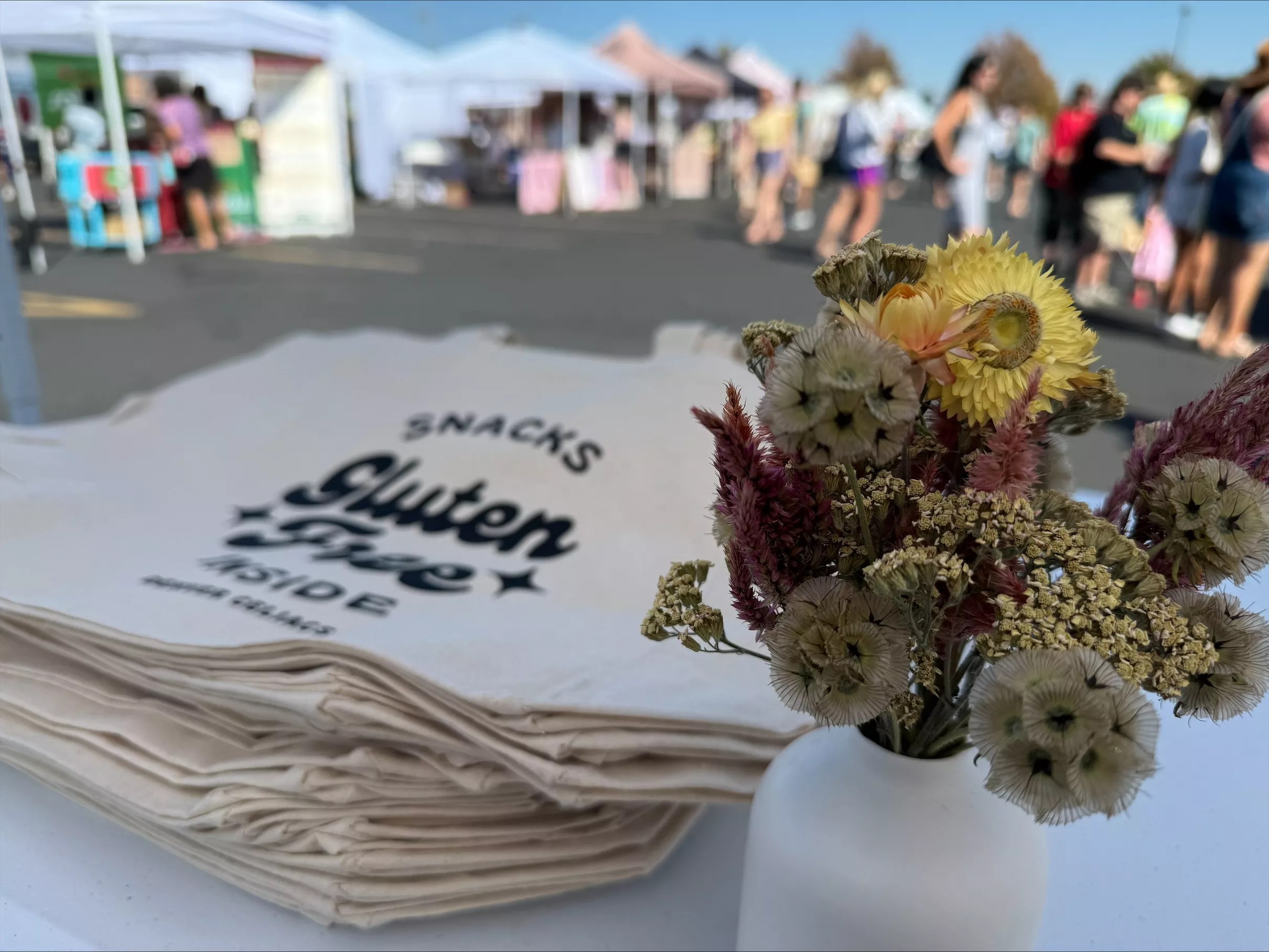
Denver Celiacs

Audio By Carbonatix
Kelsey Cole has celiac disease. If she inadvertently ingests gluten from any source, within an hour she experiences debilitating stomach pain, breaks out in a rash, vomits, and then suffers from insomnia for several days. It can take up to six months to fully recover, she says, as her body fights the gluten that it interprets as a foreign object and continues to attack.
Which is why she and the estimated 3 million others with the condition in this country have to be just as vigilant about what they eat as those suffering from peanut, shellfish or other life-threatening food allergies. And while Denver is host to plenty of gluten-free restaurants and stores, it’s also why on the second Saturday of the month, from June through October, you can find her at a parking lot at Elati Street and West Hampden Avenue in Englewood, where Colorado’s first and only gluten-free farmers’ market takes place.
The market is organized by Denver Celiacs, the local chapter of the National Celiac Association; Cole has been the president since 2022. She created the gathering out of the exasperation she and others with gluten intolerance feel when visiting traditional farmers’ markets.
“There’s been many times where I would go to farmers’ markets around the Denver metro area, especially City Park and Pearl Street, and I’d be waiting in lines for so long, and then to get up to the front of the line and try to order something and vendors would be like, ‘Oh, I wouldn’t recommend this, it’s not safe for you,'” she says. “It got kind of frustrating to try to enjoy safe things without having to ask a million different questions. So I wanted to create a safe space for folks with celiac disease and gluten-related disorders just to be able to have a normal farmers’ market experience.”
At first glance, the Denver Celiacs Gluten Free Farmers’ Market looks like many other farmers’ markets, with food trucks, small businesses, farm produce, crafts, art, beauty products, dog treats, prepared foods, flowers and more all on display. Since it was introduced last year, the market has grown from around forty vendors to 85, with more than a thousand shoppers every time.
“It’s just gotten bigger and bigger,” Cole says. “More people, more vendors. They communicate with others within their networks and just doubled in size.”
The turnout is impressive, given the high bar to participate. In order to ensure that a vendor’s products are indeed safe for gluten-intolerant shoppers, Denver Celiacs employs a robust screening process. Vendors must submit a form that lists all of their products and any allergens they contain (many people who are gluten-intolerant have additional food-related restrictions). The form also includes cross-contact guidelines that adhere to the association’s established processes and procedures.
That’s because just using gluten-free ingredients is not enough to ensure a safe product; cross-contamination can be a major problem. Anything containing more than 20 parts per million of gluten is considered unsafe and likely to generate a reaction, and this seemingly trace amount can come from kitchen equipment, serving utensils, prep areas, even the gloves worn during preparation.
Something as simple as eating gluten-free french fries made in the same oil as mozzarella sticks coated with breading can make people sick. So in addition to checking the application form, organizers research each company, hold conversations over email and phone, and conduct quality checks on-site.
“We try to make sure that whoever is representing the business understands the importance and the understanding of what celiac-safe and gluten-free is,” explains Cole. “In the past, we have had one or two that kind of pushed the boundaries, and we have had no issues with asking them to leave. We make sure everybody is safe while they attend so that they have a positive experience.”
For vendors like Jeff Rehnberg, such rigor is a price worth paying. He started GFreedom Bakery earlier this year with a focus on making gluten-free cookies that his mother and two sisters, all of whom have celiac disease, could enjoy. He discovered the farmers’ market on social media and set up a booth there for the first time last month. The experience was eye-opening, he says.
“It’s just a much deeper emotional connection between customer and vendor than you would have at any other kind of market, because almost every vendor is in this for a personal reason,” Rehnberg notes. “It’s not like they saw a market opportunity. It’s a personal reason. And every customer is there because of a personal reason. So it’s a very emotional connection between buyer and seller that you would not expect in a normal market.”
Denver Celiacs Gluten Free Farmers’ Market, 9 a.m. to 1 p.m. Saturday, August 9 (and second Saturdays in September and October), 333 West Hampden Avenue. After the season ends, Denver Celiacs will hold a market inside Stanley Marketplace. For more information, visit www.denverceliacs.org.